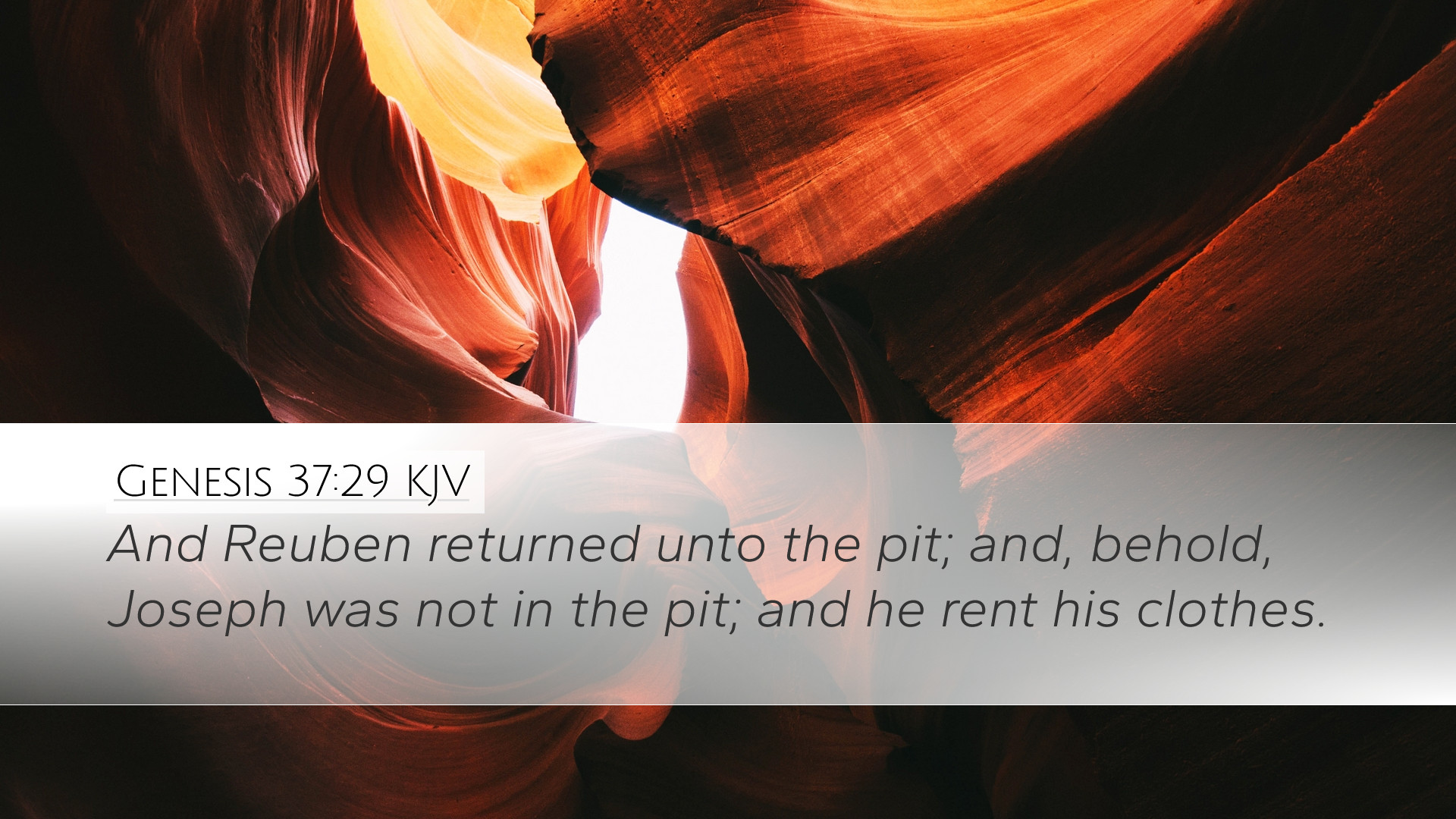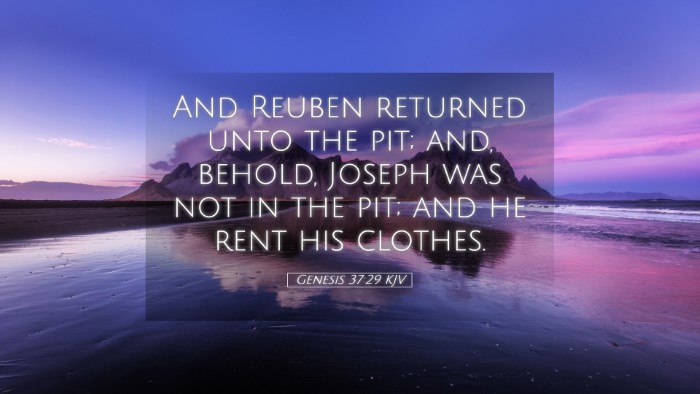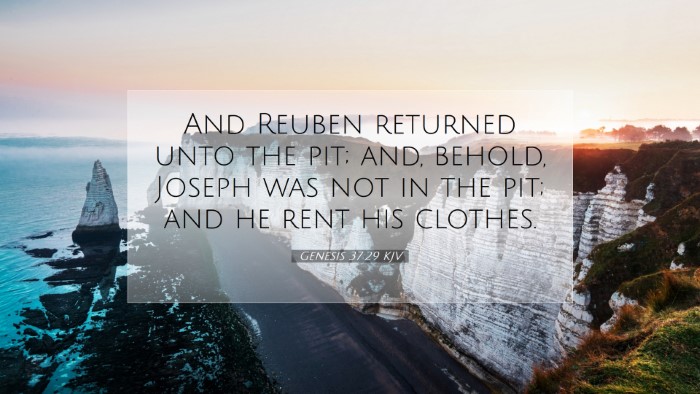Commentary on Genesis 37:29
Verse Reference: Genesis 37:29 - "And Reuben returned unto the pit; and, behold, Joseph was not in the pit; and he rent his clothes."
Introduction
This verse captures a pivotal moment in the story of Joseph and his brothers, illustrating themes of betrayal, remorse, and the unfolding of God's providence. Reuben's return to the pit, only to find Joseph missing, is laden with emotional and theological implications that scholars and theologians have explored throughout history.
Commentary Insights
1. The Context of Reuben's Actions
Matthew Henry notes that Reuben, as the eldest brother, feels the heavy burden of leadership and responsibility. His earlier decision to save Joseph by suggesting they throw him into the pit was motivated by a desire to rescue him later. This internal conflict signifies Reuben's attempt to maintain peace among his brothers while also preserving Joseph's life.
2. The Shock of Discovery
When Reuben discovers that Joseph is no longer in the pit, the gravity of his brothers' betrayal sinks in. Albert Barnes emphasizes that Reuben's immediate reaction—renting his clothes—was a traditional expression of grief and horror in ancient Hebrew culture. This act symbolizes not only his sorrow but also his participation in the collective guilt of his brothers.
3. The Symbolism of the Pit
The pit serves as a crucial symbol in this narrative. Adam Clarke provides insight into the role of the pit as a metaphor for despair and abandonment. In biblical literature, pits often represent places of suffering and entrapment. Joseph's descent into the pit foreshadows his later trials in Egypt and ultimately his rise to power, highlighting God's sovereignty even in dire circumstances.
4. Reuben’s Character and Leadership
Reuben's character comes under scrutiny when juxtaposed with the actions of his brothers. Matthew Henry points out that while Reuben shows some integrity by attempting to save Joseph, his failure to assert himself decisively signifies a lack of true leadership. His emotional response reveals an inner turmoil that reflects the consequences of familial dysfunction.
5. The Role of Providence
This incident underscores God's providential care. Albert Barnes argues that God, in His sovereignty, orchestrates events for a greater purpose. The absence of Joseph from the pit is not merely a tragic twist; it is indicative of God's hand at work, preparing Joseph’s future role in the salvation of Israel during famine.
6. The Brothers’ Guilt and Its Consequences
The brothers' decision to sell Joseph into slavery rather than killing him involves profound moral and ethical implications. Adam Clarke comments on how guilt often leads to further sin, arguing that they will have to live with the knowledge of their treachery and its repercussions. Their path of deception eventually leads to a greater family crisis, as they must confront the consequences of their choices in the years to come.
7. Implications for Modern Faith
For contemporary readers, Reuben's despair resonates with themes of guilt, responsibility, and the quest for redemption. Matthew Henry asserts that this text teaches us about the importance of repentance and the recognition of one's failures. It invites believers to consider how their actions can impact family dynamics and the need for genuine integrity in relationships.
Conclusion
Genesis 37:29 serves as a profound reflection on human relationships, the weight of family loyalty, and the mysterious workings of divine providence. As Reuben’s story unfolds, it provides timeless lessons for pastors, students, and scholars alike, reminding us of the complexity of human motives and the steadfastness of God's plans throughout the trials of life.
Further Reflection Questions
- What does Reuben's reaction teach us about dealing with guilt and failure?
- How can we recognize and respond to God's providential hand in difficult situations?
- In what ways can family dynamics influence our spiritual journey?


